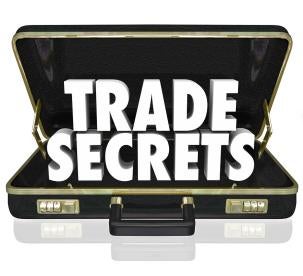 Hunton Andrews Kurth Law Firm known for complex legal matters in business law and litigation" width="220" height="62" />
Hunton Andrews Kurth Law Firm known for complex legal matters in business law and litigation" width="220" height="62" /> Hunton Andrews Kurth Law Firm known for complex legal matters in business law and litigation" width="220" height="62" />
Hunton Andrews Kurth Law Firm known for complex legal matters in business law and litigation" width="220" height="62" />

 of Andrews Kurth " width="150" height="200" />
of Andrews Kurth " width="150" height="200" />

Governor Abbott recently signed HB1995, which amends the Texas Uniform Trade Secrets Act (“TUTSA”). The amendments change the four-year old Texas trade secret statute due to two events that have occurred since the September 1, 2013, passage.
First, in 2016 the Defend Trade Secrets Act (“DTSA”) was enacted and created a federal cause of action for misappropriation of trade secrets. DTSA is largely based on the Uniform Trade Secrets Act and thus is similar to the Texas statute. However, there were differences in the definitions of “trade secret” and “owner” that could have led to different results under the two statutes in certain situations. Therefore, the definitions of “trade secret” and “owner” in the Texas statute are being amended to harmonize them with the DTSA. This should promote uniform application of trade secret law and perhaps discourage forum shopping between state and federal courts.
Second, in 2016 the Texas Supreme Court decided the case of In re: M-I, LLC (No. 14-1045, 2016 Tex. LEXIS 389 (Tex. May 20, 2016)). The Supreme Court reversed a trial court’s holding that a corporate representative could be excluded from a hearing wherein the opposing party’s trade secrets were being presented. In doing so the Court held that there is a presumption that a party is allowed to participate and assist counsel in a trade secret case and that this presumption can only be overcome if the court balances several factors. The amendment to the Texas statute will codify this balancing test as follows:
a presumption exists that a party is allowed to participate and assist counsel in the presentation of the party's case. At any stage of the action, the court may exclude a party and the party's representative or limit a party's access to the alleged trade secret of another party if other countervailing interests overcome the presumption. In making this determination, the court must conduct a balancing test that considers:
The above amendments to the Texas trade secret statute go into effect on September 1, 2017.
Copyright © 2024, Hunton Andrews Kurth LLP. All Rights Reserved.![]()
![]()
 Hunton Andrews Kurth Law Firm known for complex legal matters in business law and litigation" width="175" height="49" />
Hunton Andrews Kurth Law Firm known for complex legal matters in business law and litigation" width="175" height="49" />
 Keller and Heckman LLP law firm, regulatory attorneys, litigation, business transactions," width="175" height="48" />
Keller and Heckman LLP law firm, regulatory attorneys, litigation, business transactions," width="175" height="48" />
We collaborate with the world's leading lawyers to deliver news tailored for you. Sign Up to receive our free e-Newsbulletins
You are responsible for reading, understanding, and agreeing to the National Law Review's (NLR’s) and the National Law Forum LLC's Terms of Use and Privacy Policy before using the National Law Review website. The National Law Review is a free-to-use, no-log-in database of legal and business articles. The content and links on www.NatLawReview.com are intended for general information purposes only. Any legal analysis, legislative updates, or other content and links should not be construed as legal or professional advice or a substitute for such advice. No attorney-client or confidential relationship is formed by the transmission of information between you and the National Law Review website or any of the law firms, attorneys, or other professionals or organizations who include content on the National Law Review website. If you require legal or professional advice, kindly contact an attorney or other suitable professional advisor.
Some states have laws and ethical rules regarding solicitation and advertisement practices by attorneys and/or other professionals. The National Law Review is not a law firm nor is www.NatLawReview.com intended to be a referral service for attorneys and/or other professionals. The NLR does not wish, nor does it intend, to solicit the business of anyone or to refer anyone to an attorney or other professional. NLR does not answer legal questions nor will we refer you to an attorney or other professional if you request such information from us.
Under certain state laws, the following statements may be required on this website and we have included them in order to be in full compliance with these rules. The choice of a lawyer or other professional is an important decision and should not be based solely upon advertisements. Attorney Advertising Notice: Prior results do not guarantee a similar outcome. Statement in compliance with Texas Rules of Professional Conduct. Unless otherwise noted, attorneys are not certified by the Texas Board of Legal Specialization, nor can NLR attest to the accuracy of any notation of Legal Specialization or other Professional Credentials.
The National Law Review - National Law Forum LLC 2070 Green Bay Rd., Suite 178, Highland Park, IL 60035 Telephone (708) 357-3317 or toll-free (877) 357-3317. If you would like to contact us via email please click here.
Copyright ©2024 National Law Forum, LLC